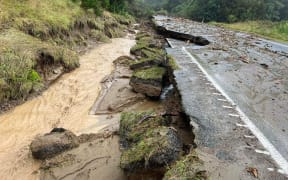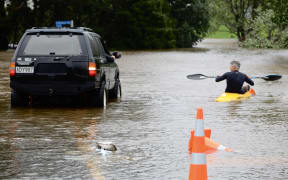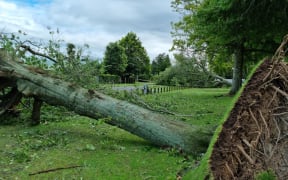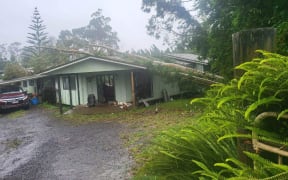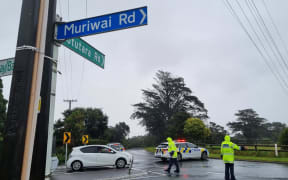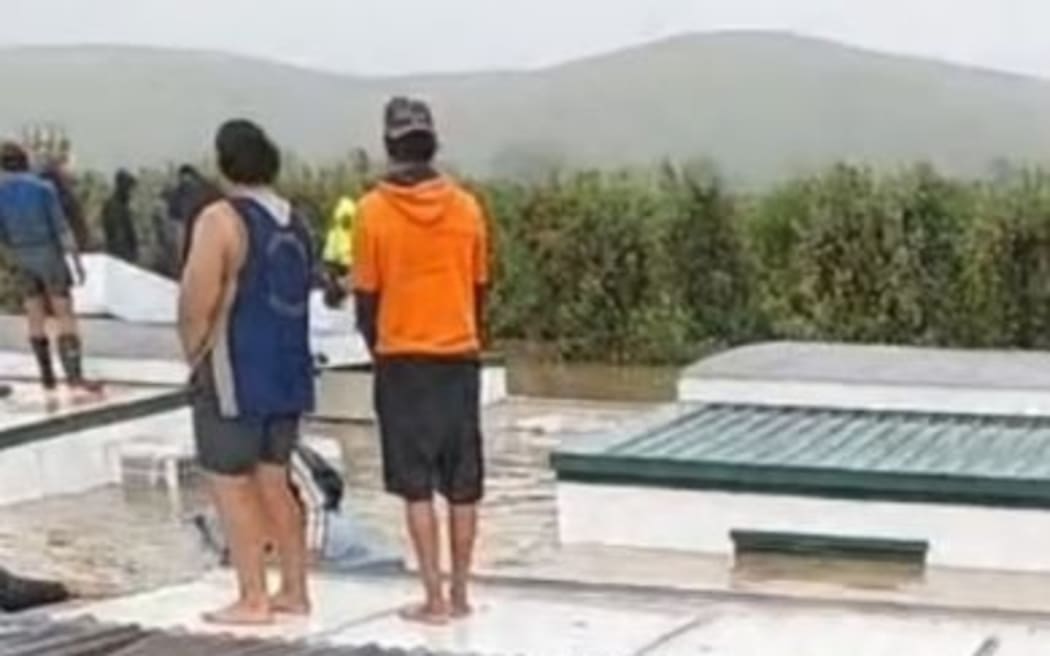
Some of the workers stuck on the rooftop. Photo:
Dozens of Tongan seasonal workers stranded on top of flooded bungalows in Napier have been helicoptered to safety.
The bungalows became flooded after the nearby Tutaekuri River burst its banks due to the heavy downpour from Cyclone Gabrielle.
Tongan seasonal worker liaison Tevita Niulata confirmed to RNZ the fruitpickers had been taken to an evacuation centre in Hastings.
"They have been rescued by the Civil Defence team, including the police… Almost all of them lost their possessions."
Emergency Management Minister Kieran McAnulty said around 6pm the rescue was still underway.
Hawke's Bay Civil Defence had said rescuing the workers by boat was not an option, due to strong torrents of water in the area.
Earlier on Tuesday, Niulata said the men were cold and hungry, but resilient after having lived through the Tonga volcano disaster.
Auckland Tongan community leader Pakilau Manase Lua said families in Tonga had been watching on as their relatives filmed while perched on roofs surrounded by tree tops.
Tongan RSE workers in Hasting, NZ at this very moment water has now completely covered their cabins & they are forced to find safety on the roof pic.twitter.com/E2jDwmd8Tl
— SARGENT KOHAIKOE (@kohaikoe) February 13, 2023
He said the scenes were harrowing to watch.
A national state of emergency has been declared, with thousands displaced by flooding and high winds.
National state of emergency: What you need to know
- The New Zealand government has declared a National State of Emergency, to assist in the response to Cyclone Gabrielle.
- The declaration will apply to the six regions that have already declared a local State of Emergency: Northland, Auckland, Tairāwhiti, Bay of Plenty, Waikato, and Hawke's Bay.
- A national state of emergency gives the national controller legal authority to apply further resources across the country and set priorities in support of a national level response.
National Emergency Management Agency advice:
- Put safety first. Don't take any chances. Act quickly if you see rising water. Floods and flash floods can happen quickly. If you see rising water do not wait for official warnings. Head for higher ground and stay away from floodwater.
- Stay at home if it is safe to do so. But have an evacuation plan in case your home becomes unsafe to stay in.
- If you have evacuated, please stay where you are until you are given the all-clear to go home.
- People should stay up to date with the forecasts from MetService and continue to follow the advice of Civil Defence and emergency services.
- Do not try to walk, play, swim, or drive in floodwater: even water just 15 centimetres deep can sweep you off your feet, and half a metre of water will carry away most vehicles. Flood water is often contaminated and can make you sick.
